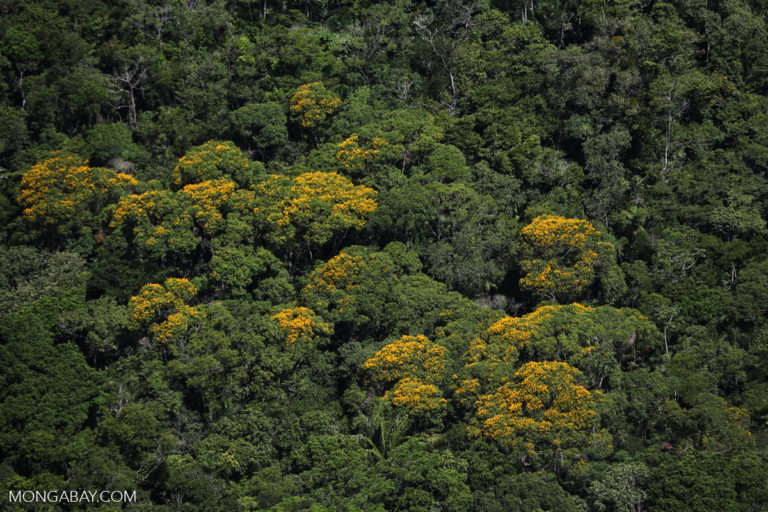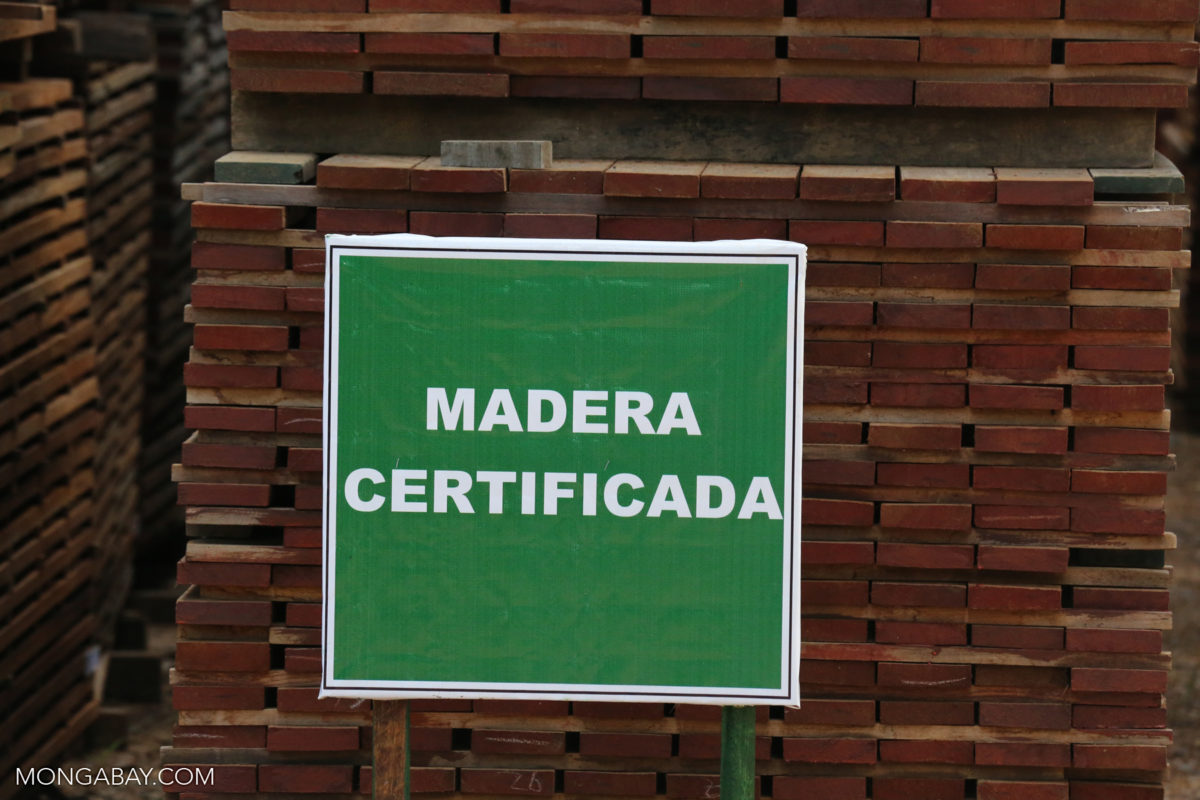- BVRio pulls together data on the pricing, supply chain and certification of timber and wood products through its Responsible Timber Exchange.
- Since opening in November 2016, the exchange has fielded more than 400 offers for 5 million cubic meters of timber.
- The partnership with the Forest Stewardship Council is aimed at bolstering the market for certified forest products.
An exchange for legally harvested timber in Brazil now has a new backer in the Forest Stewardship Council (FSC), perhaps the best-known international certification group for forest products.
The BVRio Institute, a Brazil-based nonprofit organization that takes a market-based approach to issues involving environmental compliance and sustainability, launched the Responsible Timber Exchange in November 2016. BVRio and FSC announced the agreement on March 7.
“We are delighted to be able to develop this agenda with FSC Brasil,” said Mauricio Costa Moura, director of the Responsible Timber Exchange, in a statement. “This partnership provides us the recognition that we are aligned with the same goals.”

The Responsible Timber Exchange provides pricing, supply chain and certification information to companies that buy forest products from several countries, including Brazil. A representative of BVRio told Mongabay in November that their aim was to provide access to sustainably and legally harvested timber in a sector in which supply chains and sources are often shrouded in secrecy.
The BVRio Institute investigated Brazilian timber production in 2016 and found that only about 30 percent of operators in the states of Pará and Mato Grosso, which account for 70 percent of Brazil’s timber production, showed “no indication of infringements, irregularities or non-compliance” between 2007 and 2015.
Since launching three and a half months ago, BVRio said the Responsible Timber Exchange has fielded more than 400 offers for some 5 million cubic meters (177 million cubic feet) of timber, 30 percent of which was FSC-certified.
Aline Tristão, the executive director of FSC Brazil, said that the agreement would also provide a boost to his organization’s goals.
“[T]his agreement is very important and adds to other initiatives that we have been pursuing in order to fight against deforestation and illegality in the timber industry, fostering the widespread use of certified wood,” Tristão said in the statement.
She added that teaming up with the Responsible Timber Exchange would lead to “the adoption of best practices and [creation of] more business opportunities, expanding people’s awareness about the importance of consuming forest products that originate from a good management plan.”
In Brazil, FSC said that more than 6 million hectares (23,166 square miles) are certified.
Previously, BVRio developed software that pulled together the massive amounts of information available on the sources and handling of timber and wood products. Since the launch of these tools in 2015, BVRio said that the system had been used for more than 1 billion data checks.
Collaborating with FSC will help bolster the “supply and demand for certified products,” according to the statement.
Under the exchange, buyers can check on a lot’s certification by FSC and the Program for the Endorsement of Forest Certification. Companies interested in buying wood from Indonesia that’s listed on the website can also verify that it meets the requirements of the country’s recently implemented voluntary partnership agreement with the EU’s Forest Law Enforcement, Governance and Trade, or FLEGT, licensing system.
FEEDBACK: Use this form to send a message to the author of this post. If you want to post a public comment, you can do that at the bottom of the page.
Banner image of FSC-certified wood in Peru by Rhett A. Butler.

